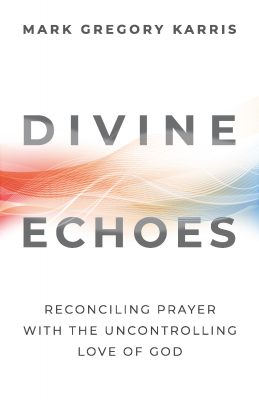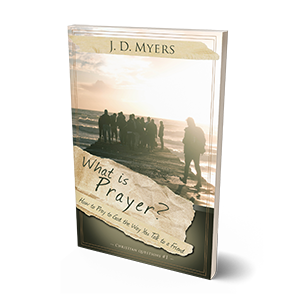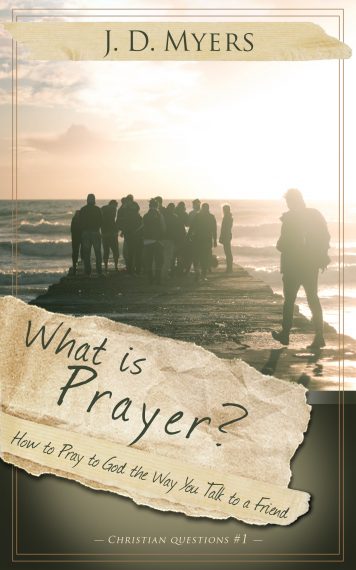I always love reading books that attempt to explain all the violence in the Bible … especially the violence that is attributed to God. I have written two books on the subject myself, but love seeing how other people deal with this difficult topic.
So when Matthew Fleischer asked to send me a review copy of his book, The Old Testament Case for Nonviolence, I readily accepted.
 As I read the book, there was much that I loved and agreed with, but a few things that did not sit well with me. Let me start with the positives.
As I read the book, there was much that I loved and agreed with, but a few things that did not sit well with me. Let me start with the positives.
3 Things I LOVED about this Book
First, the book is very readable. It is not overly technical and provides a good overview of some of the views, issues, and texts related to the topic of violence in Scripture.
Second, despite the title of the book, it actually presents a New Testament case for nonviolence as a way of reading and interpreting the Old Testament. I love this approach to Scripture, and have written elsewhere about the importance of “reading the Bible backwards.” Though the New Testament chronologically follows the Old, it provides us with the theological and hermeneutical framework through which to read and interpret the Old Testament.
Third, and related to the first point, Fleischer not only encourages people to read the Old Testament through truths revealed in the New Testament, but specifically points people to the truths revealed through Jesus Christ on the cross (e.g., chapter 10). In one of my books, I call this the “crucivision” lens. I completely agree that the death of Jesus on the cross provides the clearest explanation of all violence in Scripture.
There are other things I love about the book, but let me briefly discuss two things I disagreed with.
2 Things I Disagreed With
First, Fleischer places a lot of emphasis in the book on progressive revelation (which he calls incremental revelation). This is the idea that as human history progressed, God revealed more and more of Himself to humanity, so that the later portions of Scripture more accurately reveal the true nature of God than the earlier portions (see chapters 2, 11). I have never been a fan of this view.
I know … I know. It seems that earlier I said exactly the opposite when I praised the practice of reading the Old Testament in light of the New. Let me try to clarify.
In the progressive revelation view, we see humanity at its lowest in the early chapters of Genesis, and then as God calls Abraham, then Israel, then Judges, then Prophets, and then Kings, each successive step gets us higher up the ladder of truth until we ultimately arrive at Jesus, who then encourages us to keep learning and moving upward toward truth. So in this view, the revelation from God can be drawn like a slope that moves higher as human history progresses, so that we are smarter and wiser and know more truth than did the people of 500 years ago, and especially the people of 5000 years ago.
C. S. Lewis called this view chronological snobbery, and I agree.
In my view, we probably know less today about God and “true” theology than did people of the past, such as Adam, Abraham, and Moses. While we do have a superior revelation in Jesus Christ, we have so drastically failed to understand what most of what Jesus revealed about God, we are still theologically inferior to Adam, Abraham, and Moses.
So in my view, rather than a constant upward slope toward “truth,” human history actually made a downward slope into sin and ignorance. Jesus Christ came at the deepest trough of this slope, and turned things around. His life, ministry, and teachings provided the correction, so that we are now generally on an upward trajectory, but we are still “below” some of the biblical saints of the past when it comes to what we know to be true about God.
This may seem like a minor point, but really, it makes a world of difference in how we approach some of the ancient biblical texts, like those of Moses and David. Rather than approaching them with a morally and theologically superior attitude, we instead approach them with humility, asking and hoping and praying that we can see what they saw and know what they knew.
This brings me to my second criticism of Fleischer’s excellent book.
Due to his view of progressive revelation, he frequently mentions that since people of the past did not have the full revelation that we have today, God had no choice but to occasionally accommodate their violent tendencies by engaging in some violence Himself.
Fleischer especially argues this in his chapters on “Just War” (chapter 7; see esp. pp 121-122), and then reinforces this idea in some of the concluding words of the book where he writes that God “may have temporarily used limited violence to advance his nonviolence agenda, but his use of such violence was always good and just” (p. 230).

I simply cannot agree, based on what is revealed about God in Jesus Christ. Jesus reveals what God is truly like, and Jesus shows us that there is no violence in God and never has been.
So should you read this book?
Of course. And you can get it here on Amazon. It is a good introduction to the difficult theme of violence in Scripture. But as you read, just recognize that there are other ways of dealing with the violence in Scripture than by assigning these activities to God and calling them “good and just.” God does not accommodate such violence, nor does He withdraw and allow it to fall upon us.
Instead, He dives into the mess and sin of life with us, and bears the blunt and the blame for sin on His own beaten and bloody back. This is what we see in Jesus. I present this idea in one of my other books, which is also available on Amazon.













